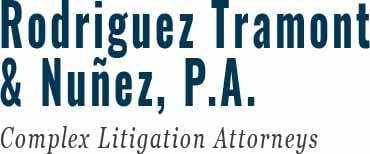Causes of Action
Failure of a member firm to comply with the sales practice rules and regulations for the standards of care may result in a legal cause of action which might result in the recovery of damages from member firms and their employees. Brokerage firm and stockbroker misconduct can be characterized by many different acts which can result in a legal cause of action. Such misconduct can result in the following claims for damages.
Unsuitable Investment Advice
The suitability of a particular investment and/or investment strategy is governed by the security industry’s “know your customer” rule which requires that a stockbroker be aware of all factors which affect an investor’s financial situation. The factors which determine the suitability of an investment include the investor’s age, employment status, tax rate, education and investment experience. The suitability of an investment will be determined based on an investor’s ability to understand the risks associated with an investment and assume the risk relative to their financial net worth. More on Unsuitable Investment Advice.
Churning/Excessive Trading
Churning is considered any excessive activity in an investment account for the purpose of generating commissions. An investor will need to prove that the level of activity is excessive in light of the investment objective. The broker must be in control of the account activity which resulted in excessive commissions paid to the brokerage firm. An investor whose account has been churned may be eligible to recover the excessive commissions paid and any account underperformance. More on Churning / Excessive Trading.
Breach of Fiduciary Duty/ Conflicts of Interest
A full-service brokerage account provides an investor much more than trade execution. An investor who relies upon the direction and advice of the stockbroker has a fiduciary relationship. This relationship requires that the brokerage firm and the stockbroker have an obligation to place the investor’s interest before the firm’s. The subordination of their interests requires the utmost diligence when making investment recommendations. Investment losses that are the result of a breach of fiduciary duty or a conflict of interest can be recovered.
Negligence
Negligence is the failure of a financial advisor to act in a reasonable and prudent manner. The negligence comes from the failure to adhere to the standards of care established by the securities industry. The negligence does not have to be intentional to result in a viable securities arbitration claim for damages. A negligent act may not be a willful or intentional act, but simply an omission or failure to act. More on Negligence.
Fraudulent Misrepresentation or Omission of Material Facts
Full disclosure is required of all material information related to an investment. Financial advisors who fail to disclose all of the material facts related to an investment can be held liable for losses sustained from that investment. Material information includes, but is not limited to, all costs and risks associated with the investment. An investor who does not receive full disclosure is considered unable to ratify an investment recommendation. When a financial advisor intentionally misrepresents or withholds material information that an investor relies upon, a claim for securities fraud can be filed. More on Fraudulent Misrepresentation or Omission of Material Facts.
Unauthorized Trading
In a non-discretionary account, stockbrokers are required to obtain prior approval from a client before the execution of any transaction. An investor who realizes a loss from an unauthorized trading transaction may be eligible to recover damages. It is important that an investor dispute the transaction within a reasonable period of time. Receipt of a trade confirmation or account statement without a subsequent dispute from the investor can be considered a ratification of the transaction.
Margin Calls
The use of margin greatly increases the risks associated with investments held in a brokerage account. Most investors are unaware that a brokerage account with margin can become many times more risky than the overall stock market. A margin balance occurs when securities are purchased or withdrawals are made by borrowing against brokerage account assets. Instead of the sale of securities to meet cash needs, many investors are encouraged to access brokerage account equity through the use of checks and debit cards which borrow against the value of brokerage account assets. During market declines, account equity declines rapidly due to the effects of margin which could result in a margin call. A margin call may require additional deposits or the sale of securities at a significant loss. The unsuitable use of margin which results in substantial losses may be eligible for recovery from the brokerage firm. More on Margin Calls.
Failure to Diversify/Securities Concentration
Diversification is the primary tool used to construct a portfolio to manage the risks inherent in the securities market. Failure to diversify across all asset classes including stocks, bonds and cash may result in the unintended exposure to risk. The failure to diversify is also known as security concentration because the invested assets are over-weighted in a particular sector relative to the overall securities market. Conventional wisdom considers any portion of an investment that exceeds ten percent of account assets, as security concentration. Losses that result from this security concentration may be eligible for recovery from the brokerage firm. More on Securities Concentration.
Switching (Mutual Fund and Variable Annuity)
The sale of a mutual fund or variable annuity with the proceeds reinvested into a similar investment vehicle with a different mutual fund family or variable annuity insurance company is prohibited, unless there is an economic benefit to the investor. If there is no economic benefit to the investor and the reason for the recommendation was solely for the generation of commissions, the transaction is considered a “Switch” transaction and is a violation of industry standards. More on mutual fund and variable annuity switching transactions.
Failure to Supervise
The securities industry requires adherence to standards of care which are promulgated through the Financial Industry Regulatory Authority (FINRA) sales practice rules and regulations. The member firms are required to supervise all activities of firm employees, including financial advisors. Failure of a brokerage firm to adequately supervise the activities of financial advisors is a violation of securities industry conduct rules which may represent a legal cause of action for losses sustained. More on Failure to Supervise.

